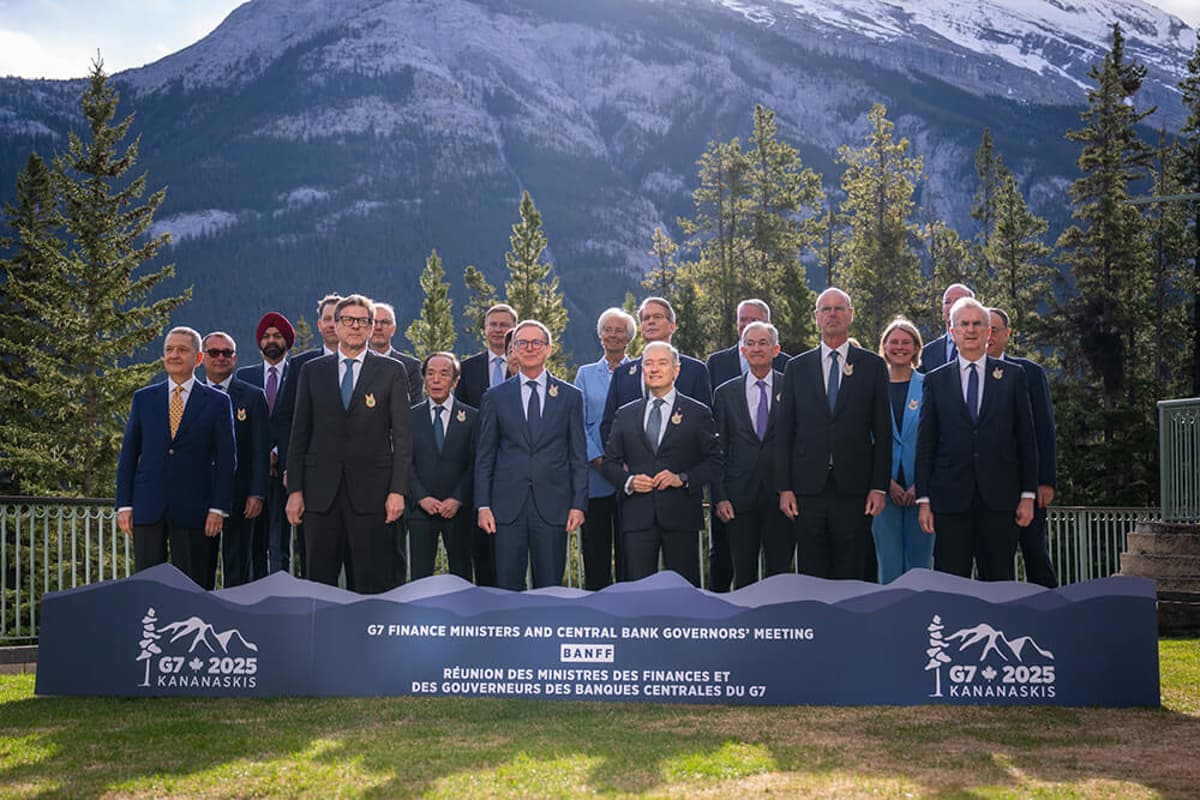Leaders from the G7 countries have convened in the Canadian Rockies in a bid to boost cooperation as trade and geopolitical challenges intensify.
An increasingly precarious and fragmented world forms the backdrop to the Kananaskis summit in Alberta – the 50th meet – amid escalating tensions in the Middle East and ongoing war in Ukraine.
An optimist might point to several new faces around the table, such as Mark Carney from the host country and German Chancellor Friedrich Merz, as a base to explore new dialogue and partnerships.
But the reality is US tariffs continue to cause collective friction within a group whose initial remit was to build economic coordination, and which today still accounts for 44% of global GDP.
To that end, the interaction between President Trump and Carney, where the stakes are high in a range of sectors including energy, industry, and defence, and for the US–Canada–Mexico (USMCA) agreement, is likely to be the most eagerly watched dynamic.
Josh Lipsky, Chair of International Economics at the Atlantic Council (the US think tank), said, “Trump will try to coordinate the group against China’s economic coercion. But the rest of the leaders may turn back to Trump and say that this kind of coordination, which is at the heart of why the G7 works, would be easier if he weren’t imposing tariffs on his allies.”
One less-controversial area of common ground is likely to be artificial intelligence and the growth in digital technologies, although even here competition, both within the group and outside it, is rising.
Canada has set out three core missions, including building energy security and fortifying critical mineral supply chains, as well as supporting technological growth.
“Rather than trying to outspend the US or out-regulate Europe, Canada can focus on building connections – creating shared standards, developing trusted public-private data hubs, coordinating strategic investments, and outlining guidelines for common learning and collaboration across borders,” added Alisha Chhangani, Assistant Director at the Council’s GeoEconomics Center.
European Commission President Ursula von der Leyen said the summit will be defined by geo-economics and geo-politics at the same time.
“When companies are not sure what conditions they will face tomorrow, they delay investment today … tariffs do not just impact exporters. They are like taxes, paid by families and businesses in importing countries. So let us keep trade between us fair, predictable and open.”
The G7 has pledged to phase out coal, transition away from fossil fuels, and increase climate financing to $100bn a year.
